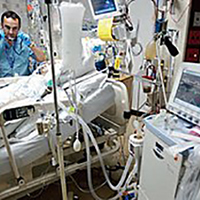COVID-19 - Collection of articles on the Coronavirus outbreak
8 April 2020
Vol. 90 No. 1 (2020)
Intubation and mechanical ventilation of patients with COVID-19: what should we tell them?

Publisher's note
All claims expressed in this article are solely those of the authors and do not necessarily represent those of their affiliated organizations, or those of the publisher, the editors and the reviewers. Any product that may be evaluated in this article or claim that may be made by its manufacturer is not guaranteed or endorsed by the publisher.
All claims expressed in this article are solely those of the authors and do not necessarily represent those of their affiliated organizations, or those of the publisher, the editors and the reviewers. Any product that may be evaluated in this article or claim that may be made by its manufacturer is not guaranteed or endorsed by the publisher.
7585
Views
3977
Downloads






